During the roundtable at the National Union of Journalists of Ukraine (NUJU) called Restoring and Ensuring Stability of Media in De-Occupied and Front-Line Territories, Oleksandr Motsnyi, the editor-in-chief of the publication, talked about how the front-line newspaper, Peremoha [Victory in Ukrainian], from Krasnopillia, Sumy Region, survives under shelling and in conditions of a catastrophic outflow of its readers.
February 23 has always been a holiday for our team – on this day, we celebrate the birthday of our publication. In 2022, we were supposed to celebrate its 90th anniversary, but all plans were canceled by the full-scale treacherous invasion of Ukraine by russian occupiers. Since then, we have been working in extremely difficult conditions of constant shelling and the threat of infiltration by the subversive groups.
About 20 settlements of our community are located in a five-kilometer border zone, they were recently even banned from entering by civilian transport. Before the war, these were quite prosperous villages with powerful agricultural enterprises; people received salaries and subscribed to the newspaper.
Before the full-scale war, the newspaper was published with a volume of twelve pages, in color. Now, we have given up the color, but we have kept the team. I believe that today, the most important and valuable thing is to save the team, and the color in Peremoha will be restored after the Victory over the enemy. It is noteworthy that our subscribers understood the move of the newspaper to become black and white.
It is difficult today, and the fact that all mass events are officially prohibited in our country, it has become more difficult to search for topics. However, we have our people to write about, so now, they are the main topic for us.
It happens that from a certain point of view, we lose in efficiency to regional TV channels. Their journalists and cameramen come to the shelling zones, shoot spectacular shots, leave, and immediately release information. But we primarily help to eliminate blockages and help people to take out some of their belongings. At that moment, you don’t think about the fact that you need to make a bright shot, but you think about how to help people.
Krasnopillia is a small village; everyone knows each other. Maybe I’m a bad journalist, but I can’t ask a person on camera about their feelings and thoughts. I’d rather do something to help.
That is why it happens when there is shelling at night, and you return to the newsroom early in the morning, you open Facebook, and there are already photos and videos from the night shelling of Krasnopillia there. Sometimes someone asks: “So you were there too. Why didn’t you post a photo?”
We thank the NUJU for the help they provided for us to survive
But we work, we try to make every issue interesting and rich, we try not to miss important events, to give people the information they need. I am very grateful to the NUJU for their help because it was thanks to this help that we were able to save the publication in the most difficult days. Now, we are celebrating the 92nd anniversary of our Peremoha.
We live by the principle that the newspaper was before us; it should be retained after us.
No matter how difficult it is, when such a test has already fallen on us, we must overcome it with dignity.
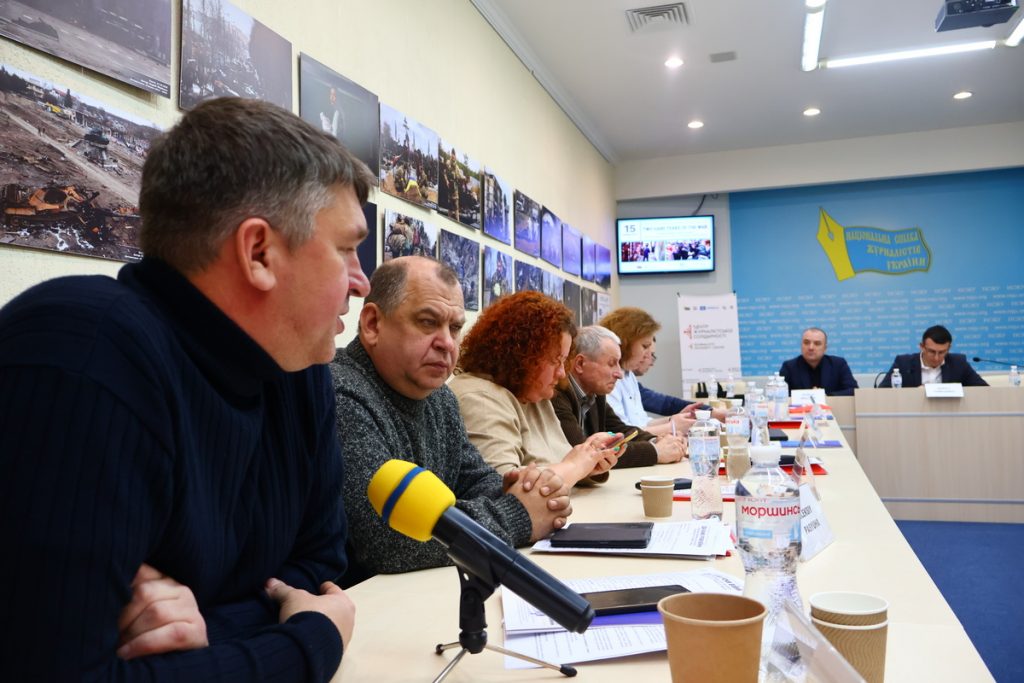
The President of the NUJU, Sergiy Tomilenko, commented on the words of Peremoha‘s editor-in-chief Oleksandr Motsnyi about the help: “External support is important for you, but it goes 50/50.”
“Of course, today’s life tests and hardens us all,” said Sergiy Tomilenko. The Krasnopillia newspaper Peremoha is an example of how the newsroom changes its work according to the time and the situation.
But today, I would like to convey a message from NUJU‘s partners, in particular, from the head of programs of the International Institute for Regional Media and Information (IRMI, Ukraine), Oleksii Soldatenko. He emphasizes that key donor expectations are that local media that receive some support is transformed. At the end of the year, they will report on how they use mentoring support and how much they managed to transform activities and production processes so that the publication could extend its life.
“Now, a historic choice is being made either in 2024; local real journalism shows that it is making maximum efforts, relying also on international support, or newsrooms are only ready to consume without changing.
The team of the newspaper Peremoha is a good example of how it is possible to change. External support is important to you, but it’s 50/50: there is donor help, and editors are ready to work, too. And this may be the best option.”
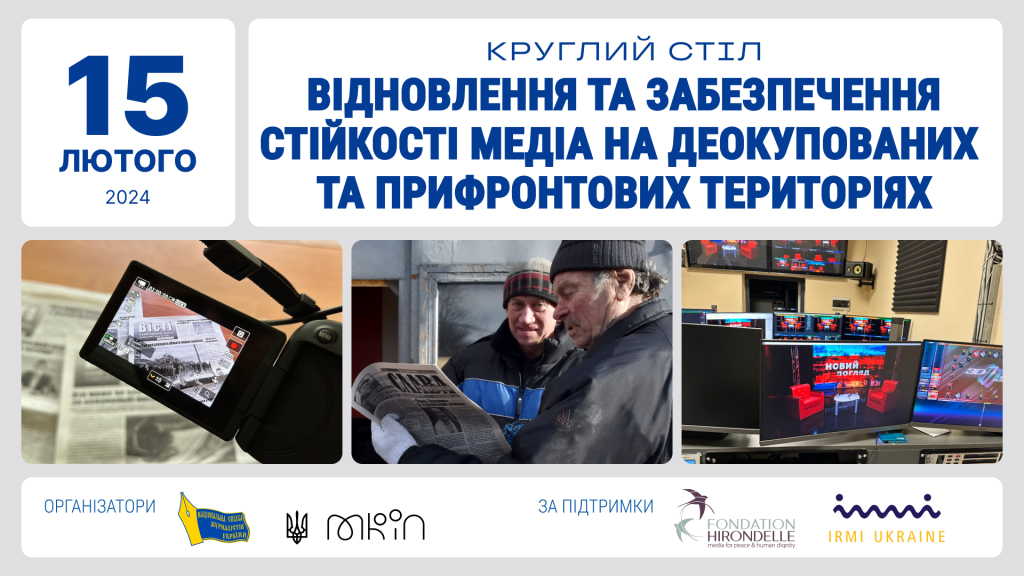
The roundtable was held at the NUJU on February 15, 2024. It was held in partnership with the IRMI and the Fondation Hirondelle (Switzerland) as part of the large-scale international expert discussion Two Difficult Years Of War: Overcoming Challenges To Journalist Safety And Media Sustainability. The discussion was organized by the NUJU and the Ministry of Culture and Information Policy under the patronage of the UNESCO National Commission.
Olha Voitsekhivska, Journalist of Ukraine

 THE NATIONAL UNION OF
JOURNALISTS OF UKRAINE
THE NATIONAL UNION OF
JOURNALISTS OF UKRAINE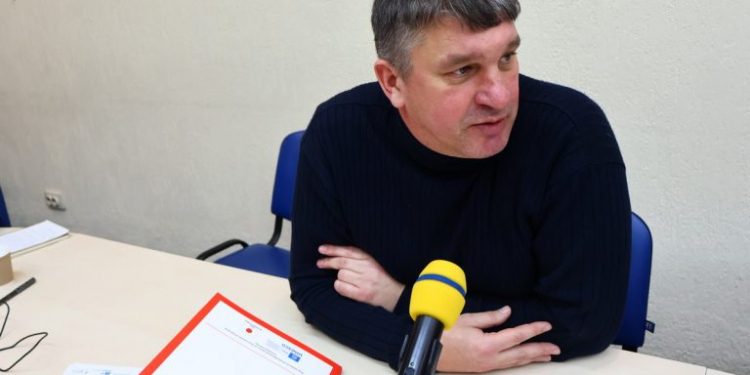
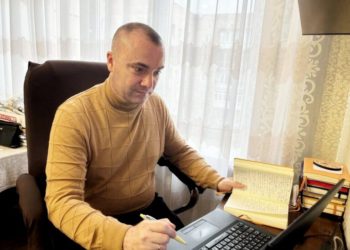

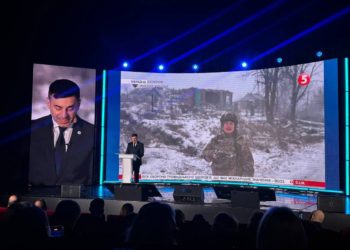













Discussion about this post